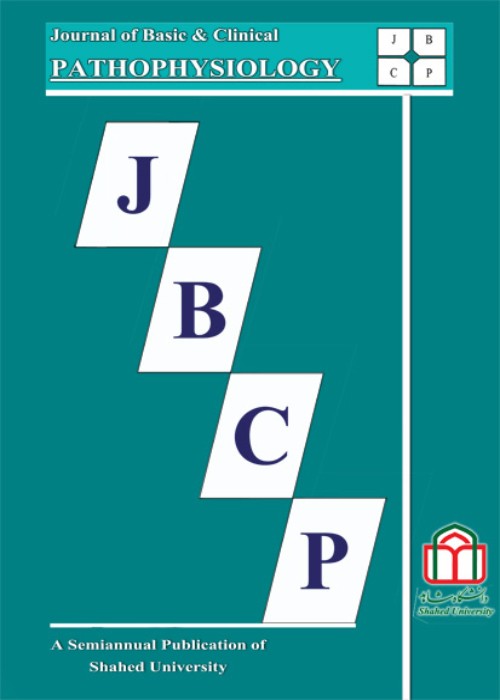Antibacterial effects of methanolic and aqueous extracts of eight plants in traditional medicine
Author(s):
Article Type:
Research/Original Article (دارای رتبه معتبر)
Abstract:
Background and Objective
Escherichia coli bacteria often causes infections in the gastrointestinal tract and other parts such as the urinary tract. Staphylococcus aureus is a common pathogen that causes infections in the skin, upper respiratory tract, and many parts of the body. In recent years, resistance to these bacteria has become one of the medical problems of antibiotics. Flowering herbs from the past are used to treat genital and gastrointestinal tract infections, and traditional herbal remedies are used to treat prostatic inflammation, gastric and intestinal ulcers, and lungs, kidneys and bladder problems. Hypericum perforatum is used to relieve the cough, symptoms of common cold, sputum, and healing wounds and injuries. Artemisia absinthium is beneficial for the treatment of arthritis, and inflammation of the spleen and hepatitis and the lavender plant is antiseptic. The aim of this study was to determine the antimicrobial effect of the extracts of these plants.Materials and Methods
In this study, the antimicrobial effects of aqueous and ethanolic extracts of the above-mentioned plants on standard bacteria were studied. Methanolic and aqueous extracts were performed using standard methods. Serial dilution of the extracts was prepared. The extracts were then concentrated in water bath. Determination of hypersensitivity was done by disc diffusion method for each extract and the findings were analyzed.Results
The results of this study showed that the alcoholic and aqueous extracts of Artemisia absinthium on Escherichia coli and Achilles millefolium aqueous extract on Staphylococcus aureus have the highest effect. The antimicrobial effect of the aqueous extract of Ruta graveolens and alcoholic extract of Artemisia absinthium was more than the others.Conclusion
The widespread use of antibiotics and drug resistance has led to more attention to medicinal plants. Some plants extracts have a significant antimicrobial effect. The plants studied in this study had an inhibitory effect on Escherichia coli and Staphylococcus aureus strains. It can be hoped that with further investigation of the various forms of the extracts, effective and safe drugs were obtained to control the bacteria.Keywords:
Language:
English
Published:
Journal of Basic & Clinical Pathophysiology, Volume:8 Issue: 1, Winter-Spring 2020
Pages:
9 to 15
magiran.com/p2140323
دانلود و مطالعه متن این مقاله با یکی از روشهای زیر امکان پذیر است:
اشتراک شخصی
با عضویت و پرداخت آنلاین حق اشتراک یکساله به مبلغ 1,390,000ريال میتوانید 70 عنوان مطلب دانلود کنید!
اشتراک سازمانی
به کتابخانه دانشگاه یا محل کار خود پیشنهاد کنید تا اشتراک سازمانی این پایگاه را برای دسترسی نامحدود همه کاربران به متن مطالب تهیه نمایند!
توجه!
- حق عضویت دریافتی صرف حمایت از نشریات عضو و نگهداری، تکمیل و توسعه مگیران میشود.
- پرداخت حق اشتراک و دانلود مقالات اجازه بازنشر آن در سایر رسانههای چاپی و دیجیتال را به کاربر نمیدهد.
In order to view content subscription is required
Personal subscription
Subscribe magiran.com for 70 € euros via PayPal and download 70 articles during a year.
Organization subscription
Please contact us to subscribe your university or library for unlimited access!


